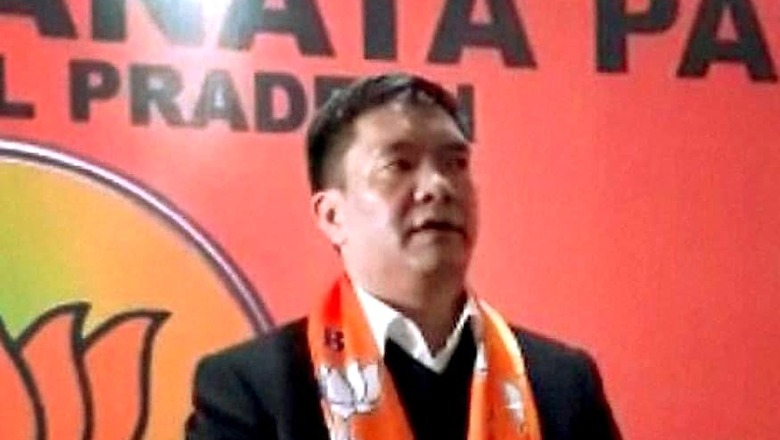
views
In a bid to make the state administration “effective and accountable”, Arunachal Chief Minister Pema Khandu has once again made a strong push for separate cadre.
“Our state is unique in terms of Geopolitical area, cultural diversity and abundant resources. We cover the biggest area among northeastern states. The roadmap laid by the central and state government for development should be backed by administrative push and consistency in governance,” said CM Khandu as the BJP state executive meeting passed the resolution for separate cadre for a second time on October 1, 2019. A similar resolution was earlier passed by the All Party MLAs in the Legislative Assembly session in October 2017.
Since the time it attained statehood in 1987, the administrative structure of Arunachal Pradesh has remained the same, but there has been a continued political aspiration for separate cadre. The Indian Frontier Administrative Service (IFAS) had been created to manage frontier territories like the North East Frontier Agency, but it was later merged with the Indian Administrative Service (IAS) in 1968 and since then, Arunachal is part of the Arunachal, Goa, Mizoram and Union Territories (AGMUT) cadre. As per the latest allocation, the state has 42 total sanctioned officers.
BJP MP from East parliamentary constituency, Tapir Gao on Monday said that central government officials under the AGMUT cadre who serve for a short period in the state do not have an ‘institutional memory’ to be able to concentrate on the exact developmental and administrative needs of the state.
“I have met BJP national President Amit Shah, PM Modi and then Home Minister Rajnath Singh over this issue. I have also presented my views in the Parliament – the IAS/IPS officers sent to Arunachal Pradesh are part of ‘punishment posting’, but they are good officers,” said Gao.
“One should understand that Arunachal is a state with a unique geopolitical-socio-economic scenario. We have 27 major tribes, and each district has a separate tribe. These officials spend one year in learning the geopolitical aspect, and by the time they are ready to do any good, they are posted out. We want them to be here for a longer tenure so that they can prepare the concept of development, and implement it under their guidance,” he added.
Citing the example of Sikkim as a state having separate cadre with good development outcomes, Gao said Arunachal Pradesh being bigger than the states of Assam or Meghalaya also demands the same.
“We have seen so much development in Sikkim-considerable developments in areas like organic farming, tourism, education. This is because they have a separate cadre, and officials have the professional competence and experience to administer the area. Being a border state, a separate cadre is much needed in Arunachal Pradesh for continued development…What can the officers do in two years?” asked Gao, stating that a longer tenure is desired to instill a sense of belongingness, a genuine linkage with the state that would enable them to understand local issues.
Chief Minister Khandu said that shorter terms and frequent transfer of officers have paralyzed the state’s development as several projects and policies had to be abandoned because of the transfer of the officers who had initiated those projects.
“Central schemes could not be implemented and executed properly - officers come to the state for a short period and are not able to understand the tribal culture and sentiments. A separate cadre for the state would establish a team of dedicated officers who would ensure continuity in administration and governance.”
Arunachal Pradesh Governor Brig (Retd) BD Mishra on Sunday had called on Union Minister Jitendra Singh, and among other issues pertaining to the state also discussed the need of a separate cadre.
Not just Arunachal Pradesh, the Mizoram government too had placed the request for separate cadre for the state in the All India services. Mizoram Chief Minister Zoramthanga raised the issue before Union Home Minister Amit Shah during his recent visit to the state, and also at the 68th plenary session of the North East Council held in Guwahati last month.




















Comments
0 comment